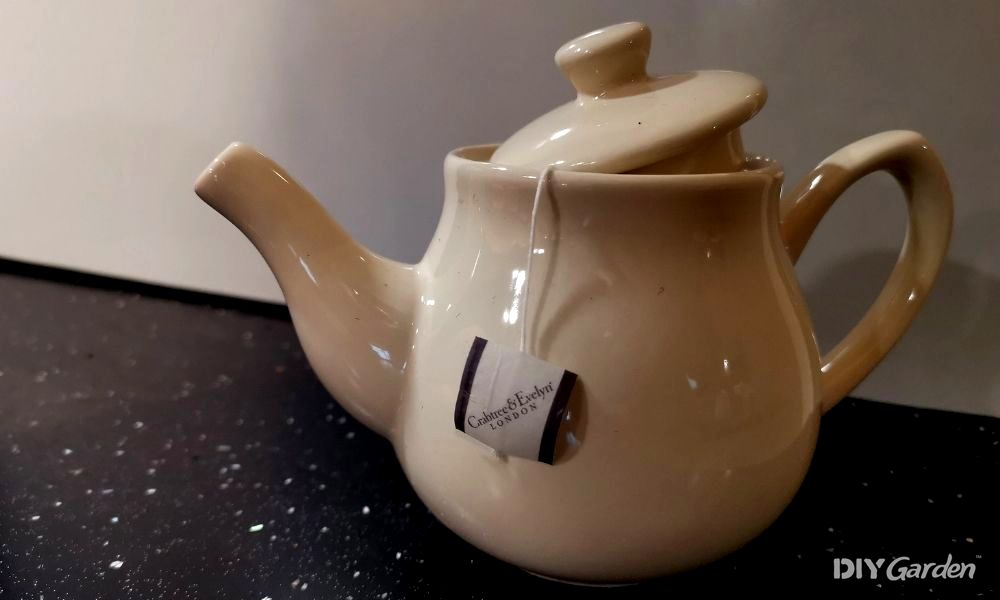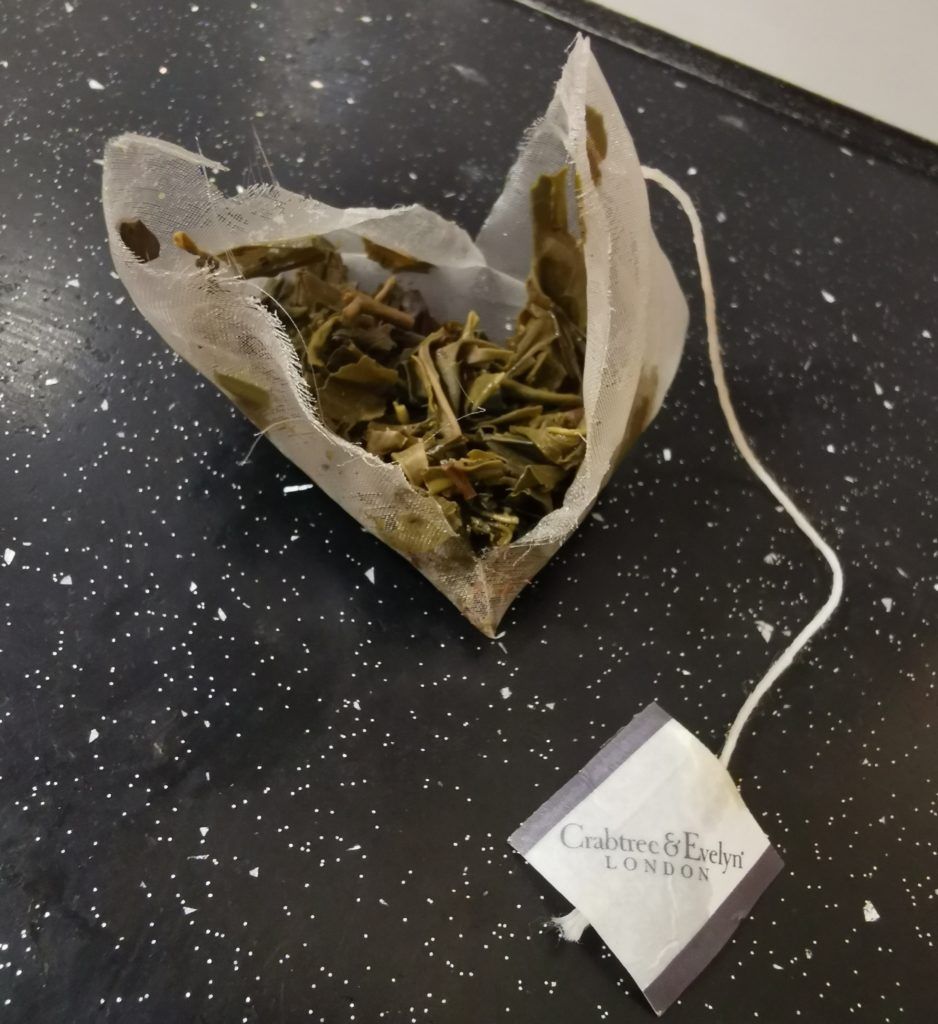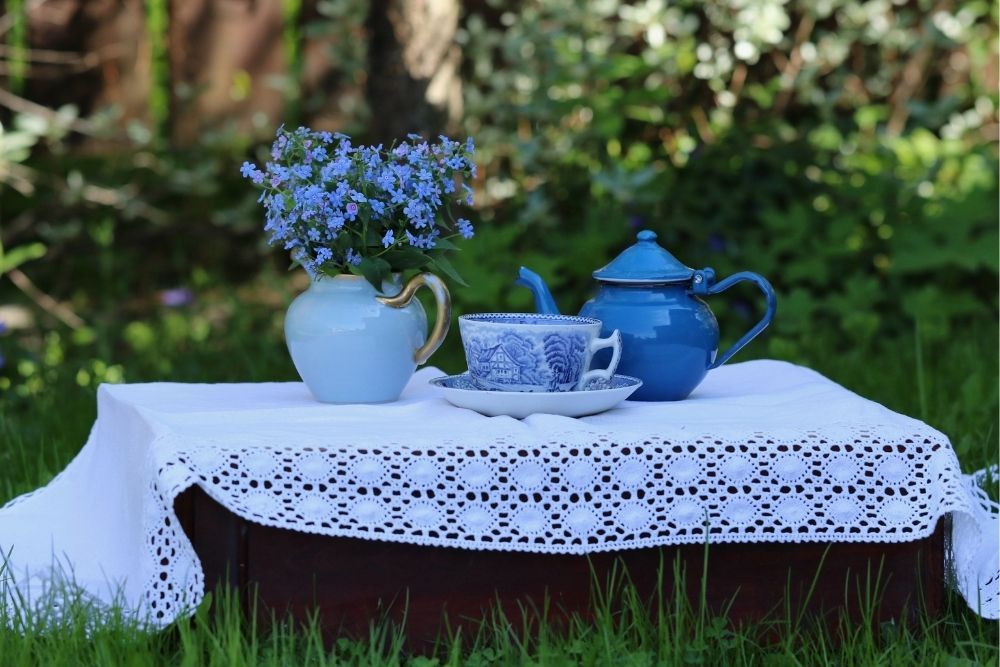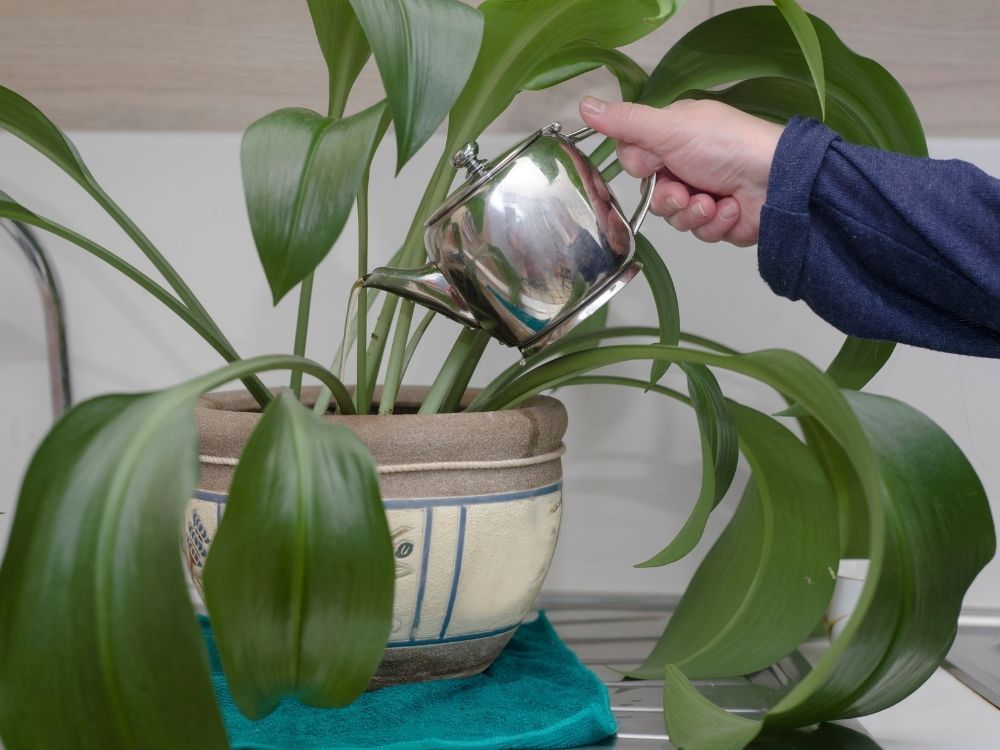
Tea is no longer just our favourite brew – it’s supposedly great for plants, too!
But is bathing our plants in a brew really the answer to our watering woes? Uncover what tea contains, which plants benefit from it, and how to save your plants from scorching.
What’s in Tea?
The contents of tea remains a mystery. Tea has a complex composition of thousands of chemicals. But many of these chemicals are allusive, even today.
To give you an idea of the sheer number of components – tannins are just one compound within tea. Tea possesses 30,000 varieties of this particular chemical ingredient alone.
It also has around 30 different minerals, to our knowledge.
Is Tea Good for Plants?
Tea is made up of plant leaves, typically the leaves of Camellia sinensis. This organic matter is jam-packed full of nutritional content. When you pour hot water over your tea bag, you’re extracting these nutrients from the leaves.
Sometimes, tea leaves contain more nitrogen than some plant fertilisers! When dried, tea leaves accommodate:
- 4.4% nitrogen
- 0.25% potassium
- 0.24% phosphorus
Nitrogen is an essential component of chlorophyll. It helps plants convert sunlight into energy which encourages growth. It also assists the development of proteins.
Potassium helps the movement of nutrients, water, and carbohydrates in plant tissue. It has a vital role in determining the rate of photosynthesis, too.
Phosphorus has many responsibilities in plants. It aids photosynthesis, energy transfer, the movement of nutrients, and the conversion of starches and sugars.
So, we can see why pouring tea on plants may be beneficial in theory. But in actual fact, the nutrients don’t always reach the plants; they’re often inaccessible.
Unfortunately, tea also contains components harmful to plants, like fluorine, aluminium, and manganese. Although these won’t hurt you or me, they can severely inhibit plant growth.
Should I Water my Plants with Tea?
The message from most experts is to stick to a good watering and fertiliser regimen. But that doesn’t mean your old tea leaves have to go to waste; your compost heap is screaming out for that nutrient-rich matter!
But if you’re adamant about hydrating your plants with tea, the general advice is to pick an organic brand. The natural matter in organic brands will ensure it’s only the nutrients your plants are getting. The non-organic brands may make a tasty brew, but they serve your plants a side dish of harmful pesticides.
Also, bear in mind what you have in your tea – if you’re pouring leftovers from your mug, it’ll likely contain milk and sugar, too. We all know the horrors of gone-off milk, so think twice if it’s houseplants you’re watering.
Both milk and sugar are food sources for microbes, which you may not want lingering on your plants. The thought of tiny living organisms climbing all over your treasured houseplants may be worse than the actual outcome, though.
Which Plants Like Tea Leaves?
The tannin content of tea increases the acidity of the soil. This is excellent news for plants loving acidic soil, but not all of them do.
So what plants like tea water? Here’s some that simply can’t get enough:
- Hydrangeas
- Rhododendrons
- Heathers
- Ferns (not the Maidenhair fern, though)
- Magnolias
- Camellias
- Japanese anemones
- Ceanothus
If you’ve got any of the above, a brew may work wonders. But if you’re unsure whether your plant likes its soil acidic or alkaline, it’s best to stay on the safe side. Ah well, more tea for you!
How to Water Your Plants with Tea
This step seems simple, right? Actually, if you’re planning on sprinkling tea on your plants, there’s a specific way to do it.
It’s time to get your teapot out! Brew a pot of tea with one or two tea bags in. No plant will appreciate scorching water, so the next step is to leave this to sit overnight.
Before watering your plants with your brew, ensure it’s completely cool. Then, go about your watering like any other day.
But if that sounds like too much hassle, there’s another way! Just skip out the water altogether and bury a used tea bag in the soil.
You won’t be doing anyone a favour if your tea bag isn’t wholly decomposable – double-check it’s paper, not polyester! While you’re at it, take the string and staple out of it because they’re not doing any good, either.
Put the Kettle on!
So put the kettle on and pour yourself a brew. But maybe refrain from refreshing your plants with this delectable drink. Although tea leaves are packed full of nutrients, your plants may not benefit from them. And your alkaline-loving plants most certainly won’t!



